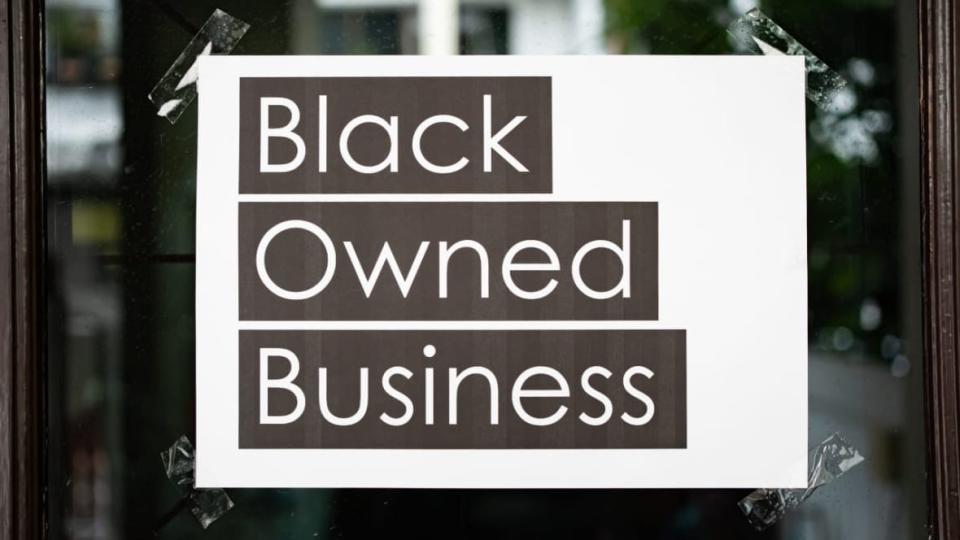Does the ‘Black-owned’ label help or hurt Black businesses?
In 2020, the “Black-owned” label became a beacon for those seeking to support Black businesses — but it has also brought a backlash.
‘Tis the season for shopping and — for many — the season for shopping Black-owned. However, according to research from the University of Washington, businesses may not see long-term benefits from labeling themselves as “Black-owned” and could face unintended consequences from doing so.
Researchers studied businesses during the pandemic that labeled themselves “Black-owned.” Specifically, the study analyzed GPS data from 45 million mobile devices in 20 cities to determine visits between restaurants that did and didn’t use the label.
The researchers found labeling initially helped restaurant visits but soon dropped off, raising questions about the long-term viability of labeling campaigns for any business.

“It’s helpful in the beginning, but may not be in the long run,” Bo Zhao, an associate professor of geography at the University of Washington and one of the study’s authors, told the Grio.
The study highlights the impact of Big Tech on society as well as the unforeseen issues that can arise from trying to do the right thing.
Yelp launched its labeling program in 2020 in the wake of George Floyd’s murder to bring more visibility to Black-owned restaurants.
However, the study, published in the American Association of Geographers, notes that visits to Black-owned restaurants peaked in June and July of 2020 before leveling off. The decline in visits “led to larger disparities between businesses with and without the label,” the study concluded.
The study also noted, “The possible negative consequences of the “Black-owned” label have made such a type of “support” potentially problematic.”
Zhao mentioned a few areas that were not a focus of this study. He said after the study’s publication, he began noticing people making racist comments toward businesses labeled as “Black-owned.” Additionally, simply removing the label may not matter much since it’s hard to dismiss what one has already seen.
“People’s memory still exists,” Zhao said. “Those comments still exist.”
When Cory Lamb, founder and CEO of YOLO Spirits, started his business 12 years ago, he didn’t want to label himself as a Black-owned business. He was concerned about limiting his audience and didn’t want to be stereotyped as a purely urban brand.
Then, reality set in.
He and his white associates would go to meetings with potential distributors, who often walked by Lamb and assumed one of his associates was the company CEO. “It was that good old boy system. There’s no way that this young Black man created an award-winning vodka. That couldn’t be him,” Lamb told the Grio.
But when distributors found out he was the CEO, they wanted to brand his spirit Quiet Storm Vodka as an “urban” product marketed to a Black audience.
When stores closed during the pandemic, Lamb’s company picked up sales online and Quiet Storm started showing up on lists as a Black-owned business. Lamb doesn’t know how that happened. And while he doesn’t shy away from being a Black-owned business, he wants to appeal to a broader audience, which his multicultural ads make clear.
“I Just wanted that melting pot because everyone enjoys vodka,” Lamb said,
Zhao believes Big Tech can become a better ally to Black-owned businesses by understanding that their well-meaning campaigns can have a negative impact on businesses.
“I know they’re doing this for good purposes,” Zhao said. “They’re trying to help. But I want to raise whether we can better design labeling’s technical function for communities of color.” He noted that Big Tech could do a better job of highlighting opt-out functions and becoming aware of the potential negative consequences of labeling.
Researchers noted several areas that need more study. For example, some cities have more significant disparities in spikes and declines in business, but researchers don’t know why. Additionally, the study doesn’t draw definitive conclusions about the role racism may have had on reduced visits.

Ray Marcano is a longtime, award-winning journalist who has written and edited for some of the country’s most prominent media brands. He’s a former national president of the Society of Professional Journalists, a two-time Pulitzer juror, and a Fulbright Fellow.
TheGrio is FREE on your TV via Apple TV, Amazon Fire, Roku, and Android TV. TheGrio’s Black Podcast Network is free too. Download theGrio mobile apps today! Listen to ‘Writing Black’ with Maiysha Kai.
The post Does the ‘Black-owned’ label help or hurt Black businesses? appeared first on TheGrio.

